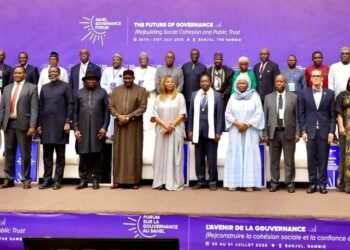The Bulk Energy Storage and Transportation Limited Company, formerly BOST, has denied importing manganese-laden gasoline under the Gold For Oil policy.
According to the company, it has taken notice of a publication on the website of modernghana.com which has attracted commentary from socialites to the effect that the Gold-for-Oil policy is to blame for the importation of manganese-laden gasoline into the Ghanaian market which is causing the underperformance of vehicles.
It revealed that one “socialite” on X, formerly Twitter, corroborated the allegation saying: “Yes, you will buy cheaper fuel, but you will use more than your saved cash to do repairs”.
This, BOST noted, was in an apparent reference to the price reduction in the product prices even as the world market prices are close to the levels in November 2023, which saw diesel sell around GHS23 per litre in Ghana.
To this end, BOST deemed it necessary to respond to these speculations as to the source of the alleged manganese-laden gasoline.
“We wish to state unequivocally that we have not imported any product under the policy which is off the specifications per the regulations of the NPA and the product specifications of the GSA.”
Bulk Energy Storage and Transportation Limited Company
Clarifying the matter, BOST indicated that it imports products on behalf of the government under the Gold for Oil policy.
The product imports, it explained, are guided by specific regulations of the National Petroleum Authority (NPA) and include specific product component tests which the Ghana Standards Authority (GSA) carries out before products are passed for discharge.
“We have so far imported twenty-three cargoes under the policy, and none has failed the quality test as carried out by the GSA.”
Bulk Energy Storage and Transportation Limited Company
BOST vows to import quality products
Furthermore, BOST assured that it shall continue to import products from safe sources without compromising on quality standards.

Additionally, it pledged to leverage the volumes to serve the market at reasonable prices to beat down the cost of living in the country.
“We maintain that the Gold-for-Oil policy is an innovative intervention that is helping with the reduction in product prices on the market whilst reducing the volume of demand for the dollars in the economy and its attendant effect on the currency exchange rate.
“The Policy, from the available data, has contributed to the relative stability of the forex and has largely ensured that the pass-through effect increases in the global market price of petroleum products is mitigated on the Ghanaian market.”
Bulk Energy Storage and Transportation Limited Company
Moreover, BOST urged the public to disregard the claims of its detractors regarding the importation of manganese-laden fuel.
It implored them to grant the “regulatory authority of the petroleum downstream the time and space to investigate the exact source of the said product and also to tighten the regime to clamp out the room for the importation of potentially problematic products on to the market”.
Meanwhile, Chief Executive of the National Petroleum Authority (NPA), Dr Mustapha Abdul-Hamid, reacting to the persistent complaints from Ghanaian car users regarding malfunctions attributed to fuel purchased at various stations, explained that the Ghana Standards Authority, responsible for drafting standards for all consumables, including petroleum products, has set the acceptable limit for manganese content in gasoline (petrol) in the country at 18 milligrams per liter.
He stated that the GSA has noted that petroleum products imported over the years have had low levels of manganese concentrate, although it has changed recently.
“Fortunately for us, over the years, all the petroleum products that have been coming have very low on manganese levels of two litre, three litre – maximum has always been six. But recently, we got a few cargoes whose levels went to about sixteen, sixteen was the maximum which is acceptable.”
Dr Mustapha Abdul-Hamid
READ ALSO: PFAG Calls For Mechanized Agric Sector To Induce Private Sector Participation


















